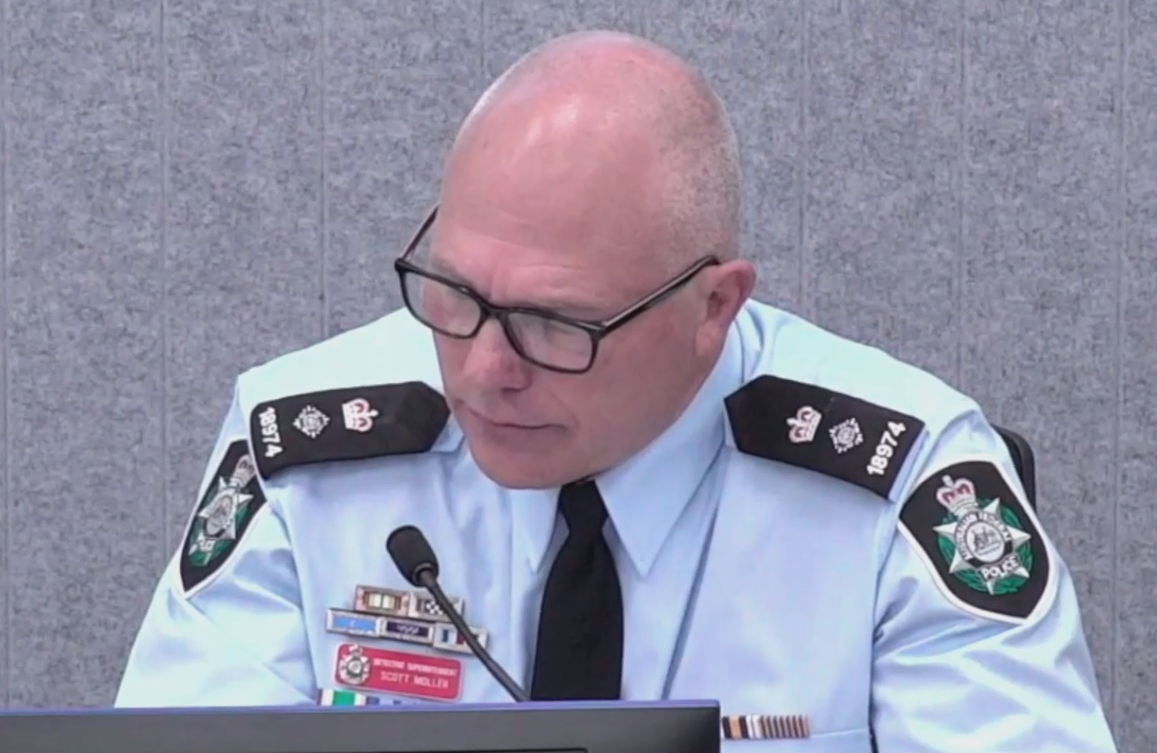
DS Scott Moller told the inquiry that sexual assault investigators struggled with high workloads, low staffing levels and a lack of training. Photo: Screenshot.
Detective Superintendent Scott Moller has told the Board of Inquiry on Wednesday (24 May) that he was a victim of sexual assault 45 years ago, an experience that drove him as a police officer to ensure victims were properly supported.
The experience was disclosed by DS Moller on his third day of evidence before the Board of Inquiry. He faced strenuous questioning about police investigators’ perceived reluctance to charge Bruce Lehrmann with sexual assault.
In response to a question from his lawyer, Matt Black, DS Moller disclosed his own assault and described himself as “a survivor” whose approach to sexual assault matters had been informed by the experience.
He denied police who believed the case should not progress had lost their objectivity and said police investigators were “offended” by a review of the ACT’s handling of sexual assault cases that suggested officers “weren’t progressing those complaints like they should”.
“I think we’ve seen evidence where members of the investigation team felt sick when they found out we were going to move forward to charge.
“They still did it, and they were committed to the process because that’s what we do as police.”
In Tuesday and Wednesday’s hearings, DS Moller described the impact of a report circulated by the Sexual Assault Prevention and Response (SAPR) Steering Committee in December 2021. It sought to investigate why a very low number of sexual assault cases in the ACT were progressing to charge.
DS Moller denied that police had been undercharging in sexual assault cases at the time Brittany Higgins took her complaint to the police.
“Certainly, the sexual assault team was taken aback by the report. They were hurt, I guess. They were upset because it pointed to their professionalism,” he said.
When asked whether the relationship between the police and Director of Public Prosecutions Shane Drumgold SC further deteriorated as a result of the SAPR report, DS Moller said, “Did it contribute to issues … yes I suppose it would’ve”, adding that “we were aware that Mr Drumgold had fed into that report” but he was not viewed as primarily responsible.
The SAPR report, which looked at the outcome of sexual assault cases after 30 days, suggested a significant difference in the progression of sexual assault cases in the ACT compared with other types of assault.
As inquiry chair, Walter Sofronoff KC put it to DS Moller on Wednesday, “At least in 2020, around half of ordinary assault cases brought to the attention of police are finalised one way or another, whereas with sexual assaults, only a quarter are”.
In another extract of the report shown to the inquiry, in 2020-21, only 7 per cent of sexual offence matters reported had resulted in charges laid, compared with 44 per cent in 2015.
Mr Drumgold’s counsel Mark Tedeschi KC suggested this represented “a deterioration in the level of charging”, but DS Moller said that “from my perspective, the data is not accurate”.
“I’m not the author of this data, so I don’t know how I can help you with this data,” he said.
An AFP review of the ACT Criminal Investigations Sexual Assault and Child Abuse Teams (SACAT) between 2016 and 2021 also found that, on average, 8.23 per cent of sexual assault cases finalised over this period resulted in a charge, with only four out of 150 cases in 2020 progressing to charge.
In questioning by Heidi Yates’ counsel Dr Peggy Dwyer, DS Moller explained that the majority of SACAT staff were “very young, inexperienced officers” and, of the approximately 28 officers operating in SACAT at the time Brittany Higgins brought her case to the police, less than four had completed training on handling sexual offences.
“SACAT has continually suffered from a high workload, reduced staffing levels, inexperienced investigators and a lack of training,” DS Moller wrote in his statement.
“We get to the point where we’ve depleted the experience to the extent where we have very young officers running investigations with minimal or less than ideal direction from a senior officer,” he told the inquiry.
The inquiry also heard from the statement of Senior Constable Emma Frizzell, who is expected to be called as a witness later this week, that the sexual offences training “didn’t provide guidance on how to conduct a sexual assault investigation” and “didn’t focus on the process, procedure or law applicable to sexual assault investigations”.
As a result of the SAPR report, around 200 to 250 sexual assault cases were reviewed and referred back to the police, and changes were made to the “oversight of investigations in SACAT”. DS Moller wrote in his statement that this “added additional process and time pressures” and “negatively impacted on moral[e]”.
“It’s added another layer to the decision-making process, which has … made the teams think that their recommendations or their instructions [are] not as important,” he told the inquiry.
When asked by Mr Tedeschi whether there had been a “cultural shift” in the DPP’s office since the circulation of the SAPR report, DS Moller agreed, adding that the ODPP was “progressing a lot more cases that they wouldn’t have previously progressed”.
“Previously [the prosecutors] were not inclined to progress matters that we’d brought to their attention, matters that we thought we needed insight or assistance with, and now … there was almost like a complete change where they were prepared to progress pretty well any investigation that we had,” he said.
“I had been concerned that a lot of the matters … were not meeting the required thresholds.”












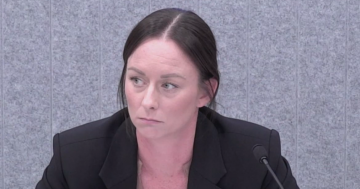
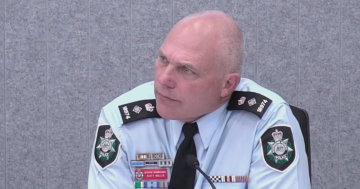

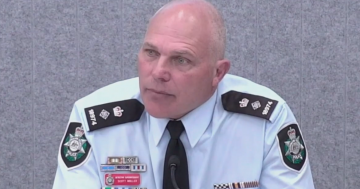
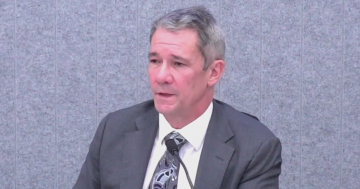
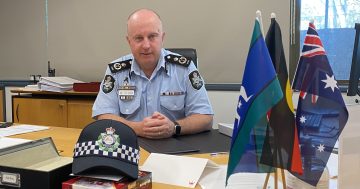
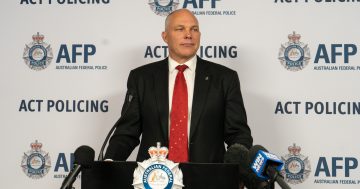
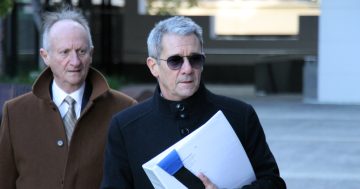
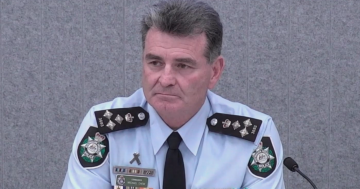

Thank you Sarah and team👍👍😊😊💕 View